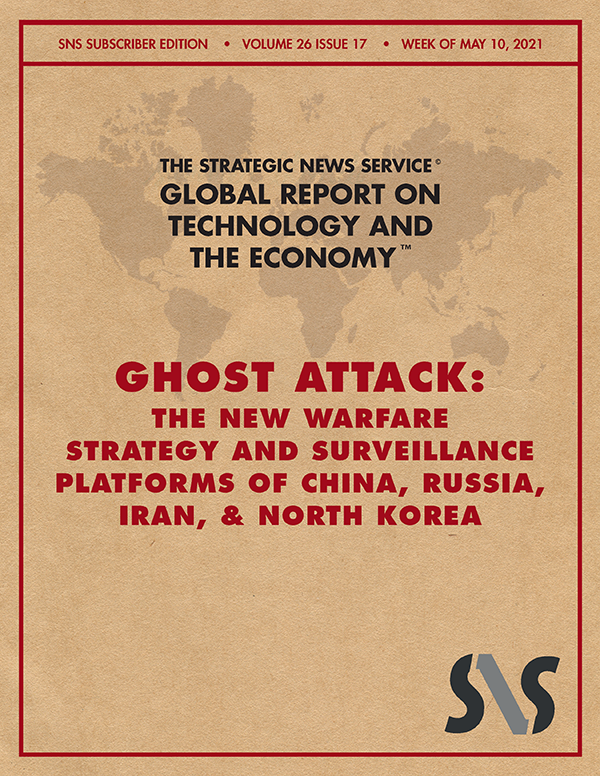Ghost attack:
The New Warfare Strategy and Surveillance Platforms of China, Russia, Iran, & North Korea
By Berit Anderson
On Monday, DarkSide, the hacker collective behind the ransomware used in the Colonial Pipeline attack, was publicly fingered by the FBI. Soon after, the group posted a mea culpa on the dark web, where it maintains a site:
"We are apolitical. We do not participate in geopolitics," the message says. "Our goal is to make money and not creating problems for society. From today, we introduce moderation and check each company that our partners want to encrypt to avoid social consequences in the future."
The irony of a group believed to be based in Russia claiming not to understand the geopolitical implications of shutting down a major US pipeline would be laughable if it weren't such a perfect example of the new international warfare strategy.
The truth is, though Biden is clawing back the last US troops from Afghanistan, we are already deep into the next war. China, Russia, Iran, and North Korea (CRINK) have been allied in a war for global control for at least the last five years.
It isn't recognized as a war, because it doesn't involve traditional weapons, but it has resulted in the deaths of millions of people. And like all wars, it is about power and control.
The Why and How of Ghost Attacks
The Goal: Create an alliance of nations that adhere to Xi Jinping's principles of authoritarianism, citizen surveillance, and top-down control that can overwhelm democratic principles of freedom of speech, free markets, human rights, and collectivism on the global stage, particularly by gathering and exerting influence through recognized global governance organizations like the United Nations and the WHO.
The Strategy: Commit non-attributable, or feasibly deniable, acts of war that advance your own national power and physically harm your adversaries, but do not fit traditional legal standards to mobilize them to a formal response.
Then foment chaos, advance the narrative of your innocence, and underline your adversary's incompetence through information warfare.
If all goes well, your adversary is harmed. And its reputation is harmed. While your reputation remains sterling.
(Or at least that's the goal. As Evan Anderson wrote in last week's issue, there is a tipping point beyond which it's hard to spin bad behavior, especially if it's harmful toward a majority of other nations.)
Of course, nothing about cyberwar or economic warfare is new, so it might seem like a matter of semantics to focus on the details of strategy when the East Coast is literally running for the gas lines.
But a shared understanding of what CRINK is doing and why is essential. It helps us contextualize present attacks of this nature and to predict future attacks. Particularly when combined with an understanding of China's strategic investments, which act as the backbone for much of this strategy.
Once you understand the pattern, you can't unsee it.



